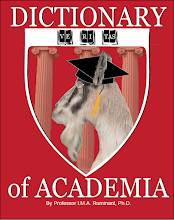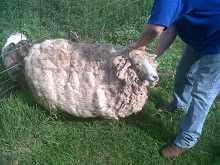
Since first posting my 15 Roundtable implementation recommendations some of my colleagues have asked me questions about them. The two most frequently asked questions are: 1) “To what extent do your 15 recommendations address the five significant issues or themes (space, scholarship, teaching modalities, graduate education and curriculum)?” and 2) “Are your 15 recommendations ranked according to their importance or urgency?” These questions have inspired me to provide a “Matrix of Significance and Agreement” and I provide its image above. I constructed the Matrix by assigning the five issues on one axis and my 15 recommendations on the other, after which I symbolized the importance of their relationship if implemented as Significant (S) or Moderate (M). The predominance of the “S” symbol on the Matrix reveals that each recommendation on this short list of 15 is indeed Significant. Letter symbols (ABCDE) on the Matrix represent the five issues and number symbols (1- 15), my recommendations. I have rearranged the 15 recommendations on the Matrix to reflect what I now perceive of as an “urgency” ranking. I invite further discussion. Email me at David.Nemeth@utoledo.edu if you like, or phone 4049.
FIVE ISSUES
A. Space
B. Scholarship
C. Teaching modalities
D. Graduate Education
E. Curriculum
FIFTEEN IMPLEMENTATION RECOMMENDATIONS
1 Transform the main campus to a 12/7/365 activity schedule
2 Emphatically commit to excellence in education at both the undergraduate and graduate levels
3 Hire more tenure-track professors
4 End “Open Admissions” at UT as this policy is incompatible with A&S College “top tier” ranking aspirations
5 Abolish the administrative position of “Chair of Department” in the A&S College and replace it with “Head of Department;” the Department Personnel Committees will evaluate and reward the performance of their Department Heads in teaching, research and service using the annual ARPA and merit processes
6 Return the Center for Teaching Excellence to its original mission and administrative structure
7 Increase campus-wide support of sabbaticals for teaching as well as research
8 Immediately commence a nation-wide search for a new Dean of Arts & Sciences
9 Reopen our Faculty Club to again serve the main campus academic community as the physical and symbolic intellectual center of their informal educational activities
10 Design and build several “nationality” classrooms (see, for example, “Cathedral of Learning” nationality classrooms at University of Pittsburg)
11 Allocate A&S College space at all scales intelligently toward the constant enhancement of its teaching, research and service excellence
12 Allocate additional and sufficient resources to Carlson Library staffing, and to book purchases and on-site accessibility to hard-copy books, with emphasis on holdings in the liberal arts
13 Strengthen commitment to shared governance and faculty control of the curriculum
14 Revisit the UT “Directions” strategic planning document and especially aspects of educational planning that impact negatively on the A&S College and its traditional liberal arts curriculum
15 Assess the costs and benefits, as well as the ethical aspects, of expensive new classroom teaching and learning technologies (given multiple scenarios of instructional needs and priorities across a faculty-controlled A&S College curriculum)

